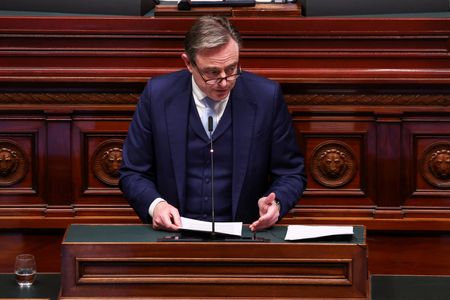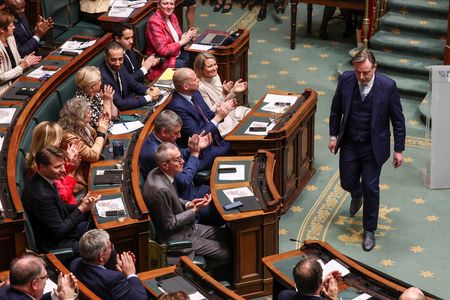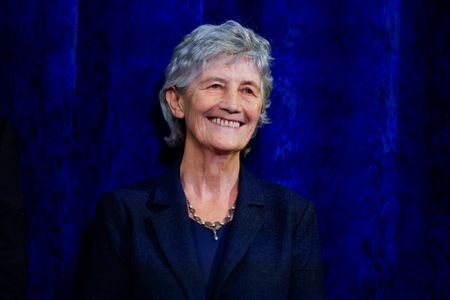By Charlotte Van Campenhout
BRUSSELS (Reuters) – Belgium’s new Prime Minister Bart De Wever presented his government’s focus to parliament on Tuesday, highlighting stricter migration policies, reversing the nuclear phase-out law, and increasing defence spending to meet NATO targets.
The right-wing Flemish nationalist, once a harsh critic of Belgium’s French-speaking southern region and its socio-economic policies, has recently adopted a more conciliatory tone, even starting his statement in French instead of Dutch.
His government wants to curb migration. Belgium received 39,615 asylum applications in 2024, 11.6% more than in 2023, while the country’s reception capacity is just over 36,200 places and was nearly full for the entire year.
“To organize a more orderly and humane migration policy, it must be much stricter”, De Wever said. Among other things, his government will make family reunification harder.
The new government will also get rid of Belgium’s nuclear phase-out law, with De Wever calling it “outdated”. Energy Minister Mathieu Bihet told local media that Belgium is looking to build new reactors.
He repeated plans to increase defence spending to 2% of GDP by 2029, in line with NATO commitments, and to 2.5% by 2034. Currently, Belgium allocates just 1.3% of its GDP to defence.
“As a founding member of NATO, it is our duty to do our part to protect Western society”, said De Wever, who attended the informal EU retreat on Monday just two hours after being sworn in.
(Reporting by Charlotte Van Campenhout, Editing by David Gregorio)










